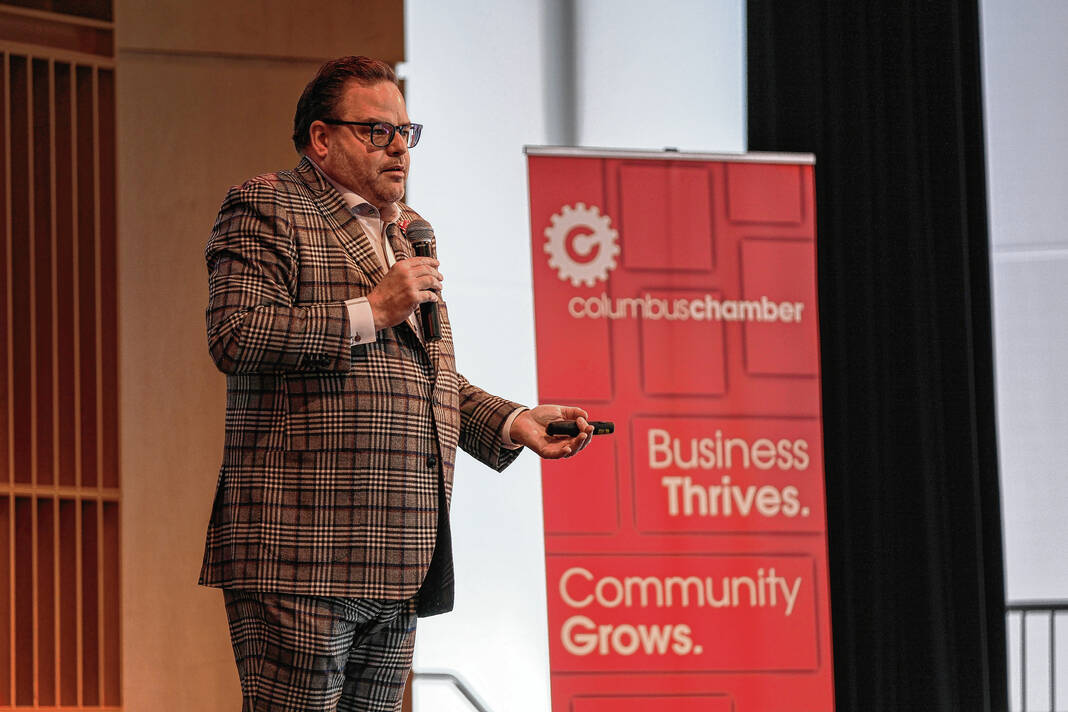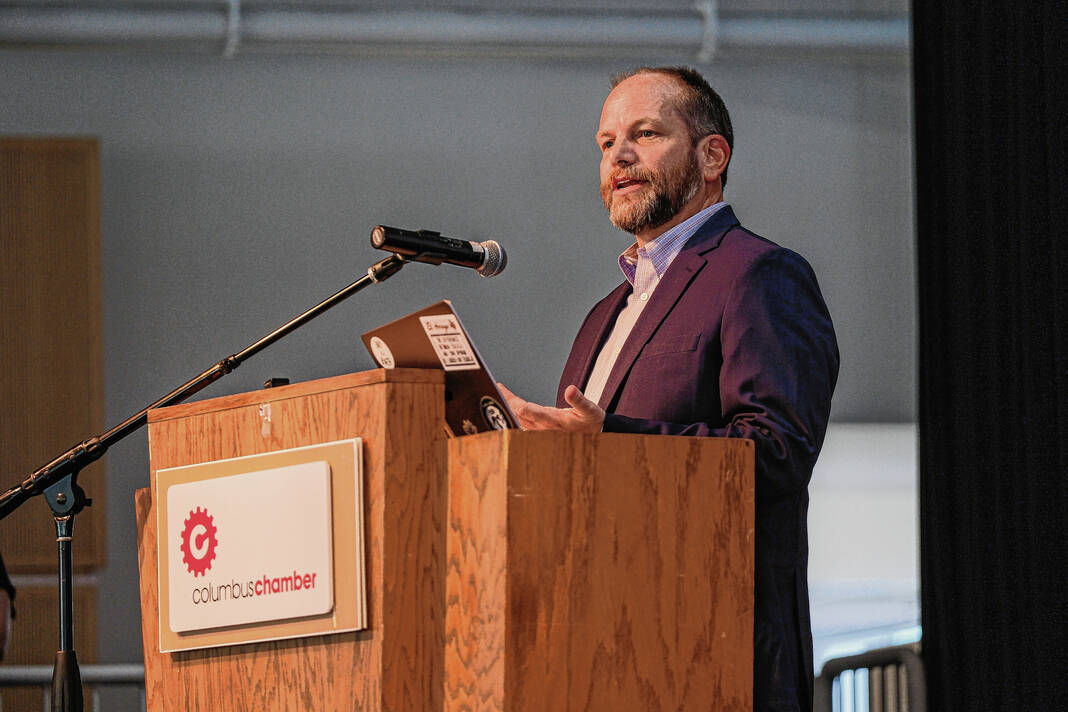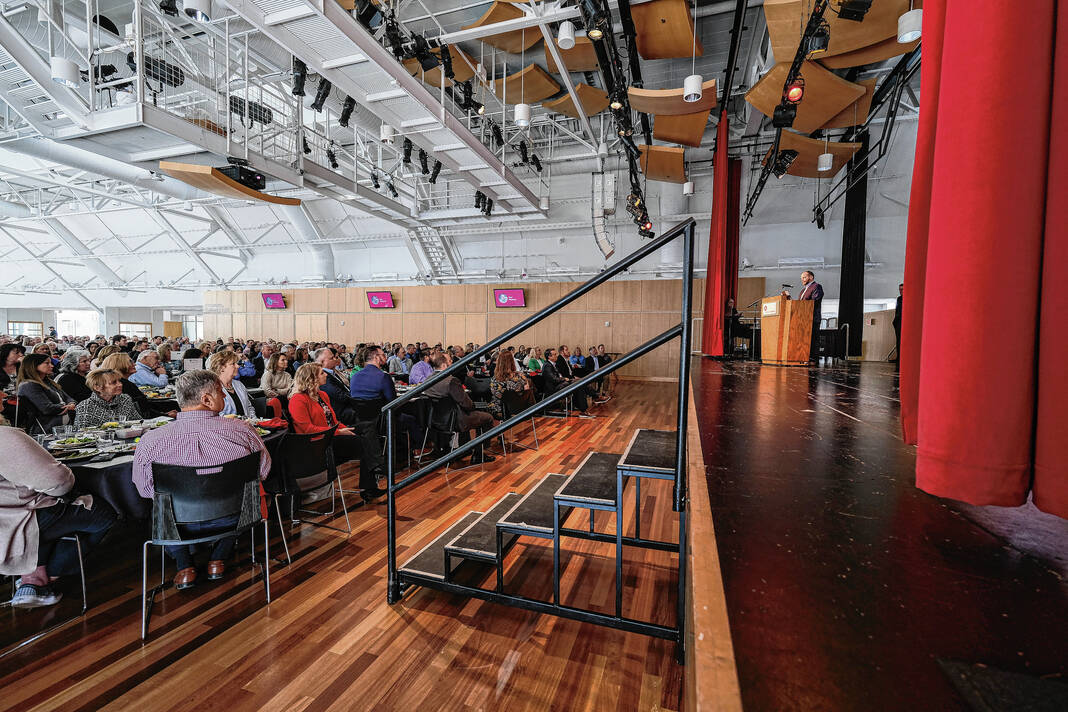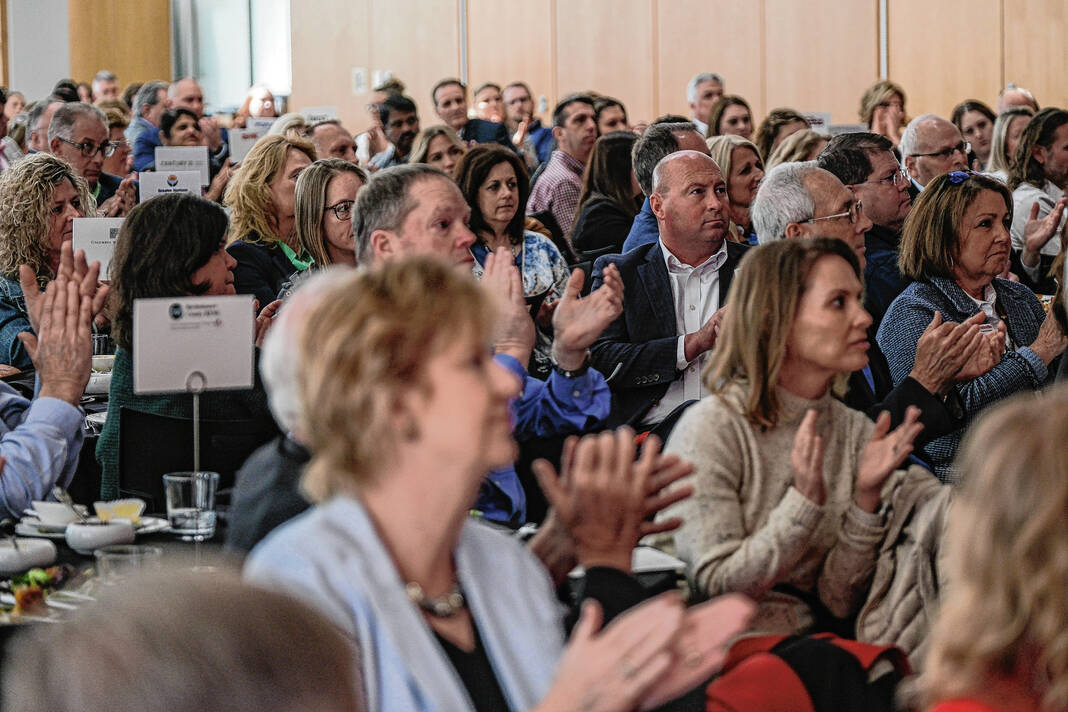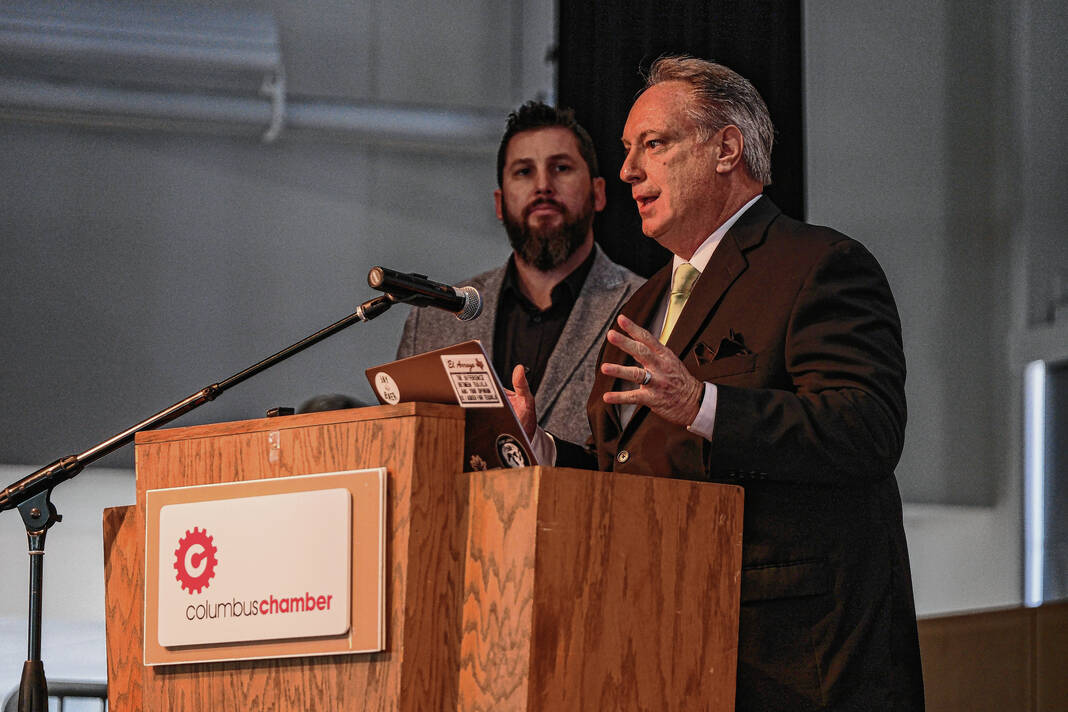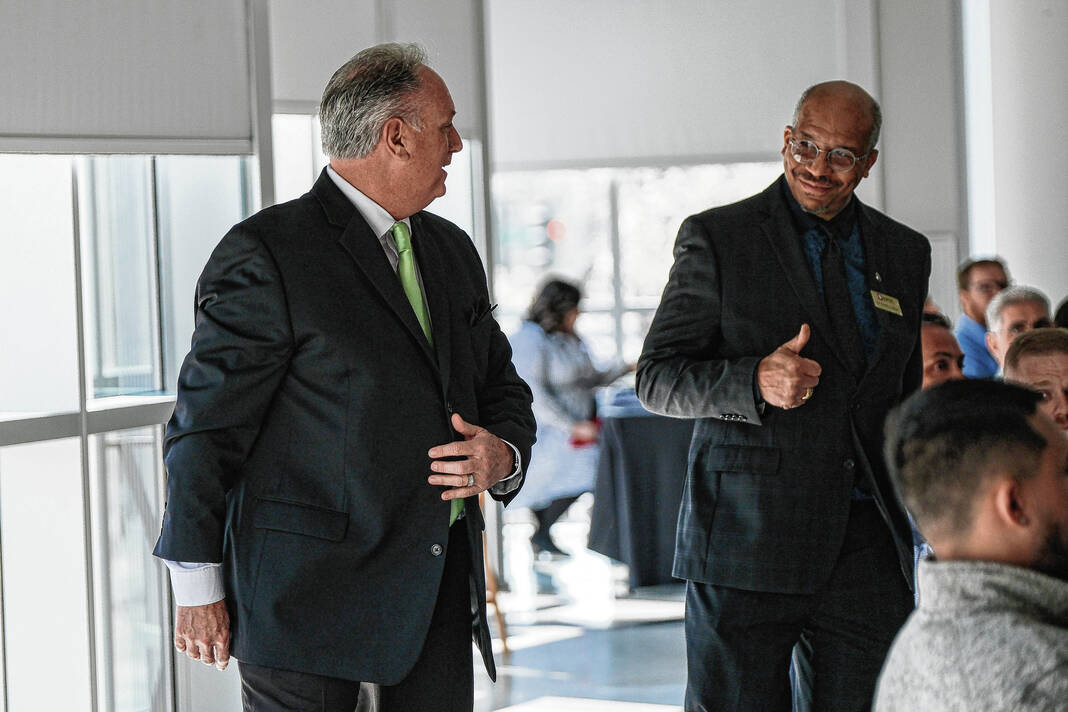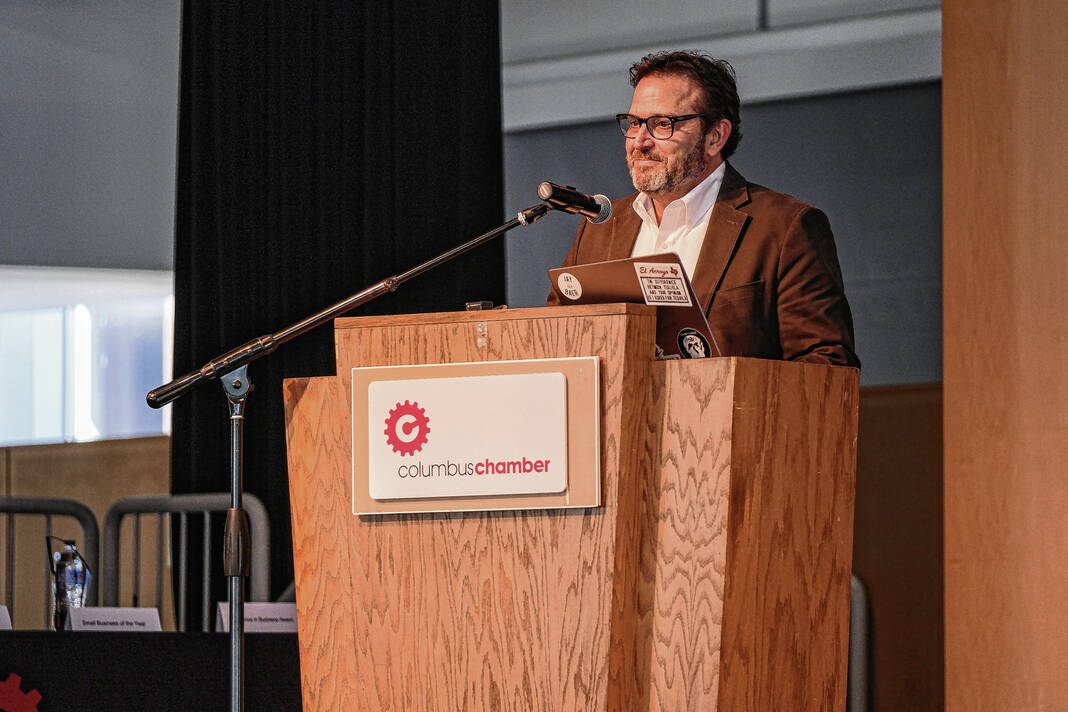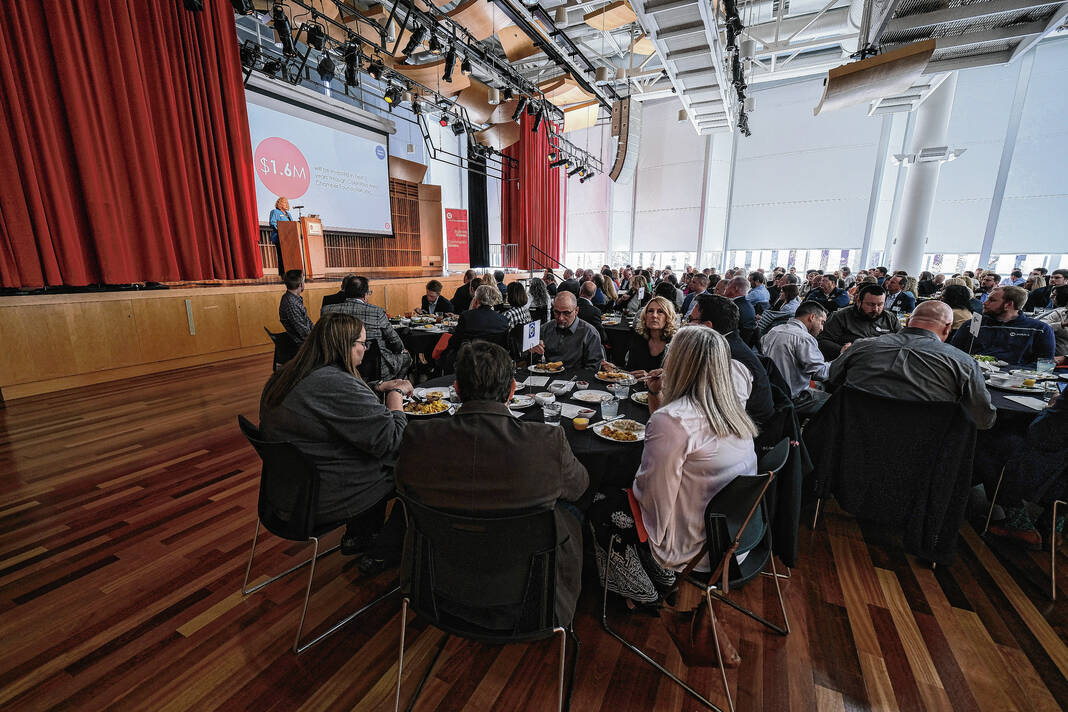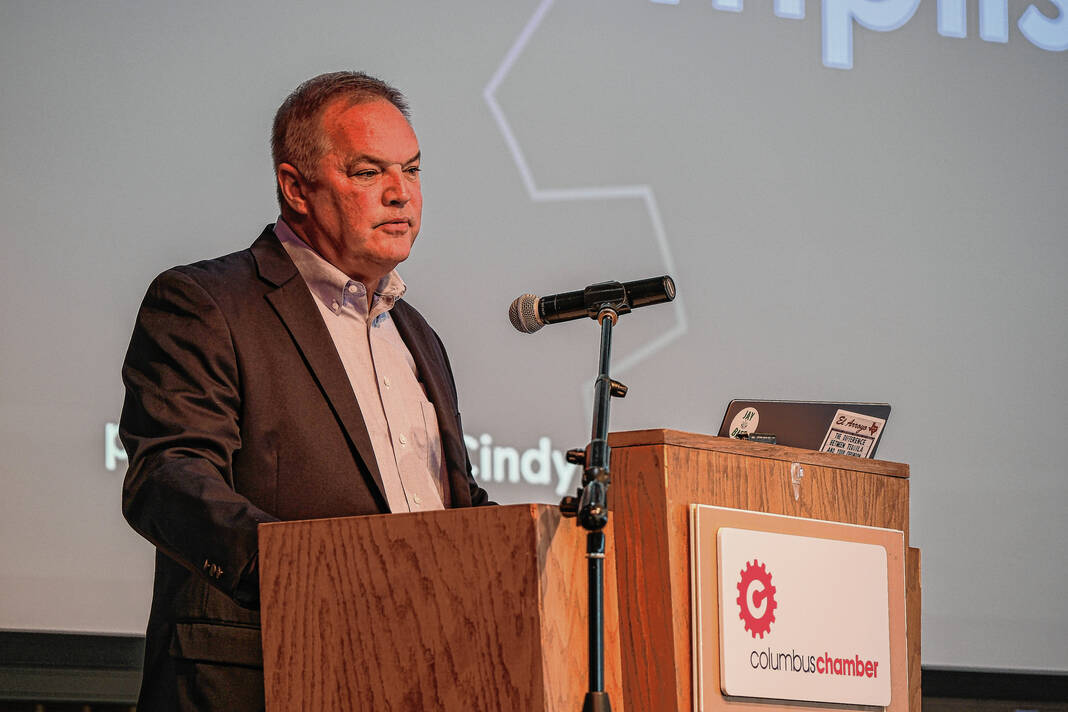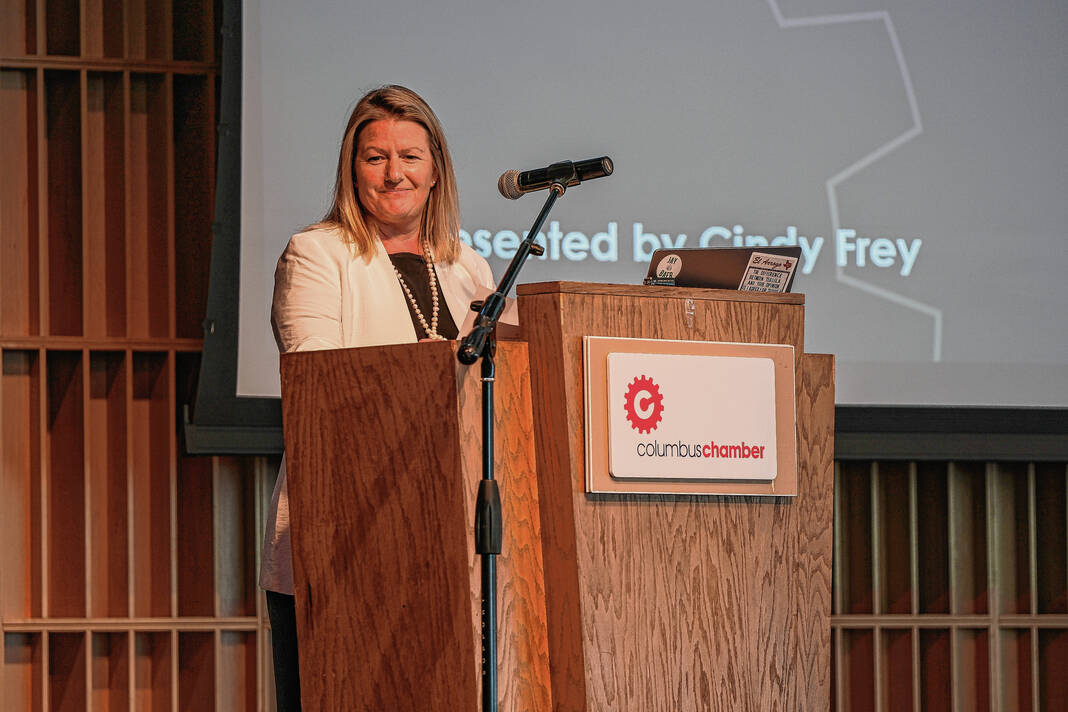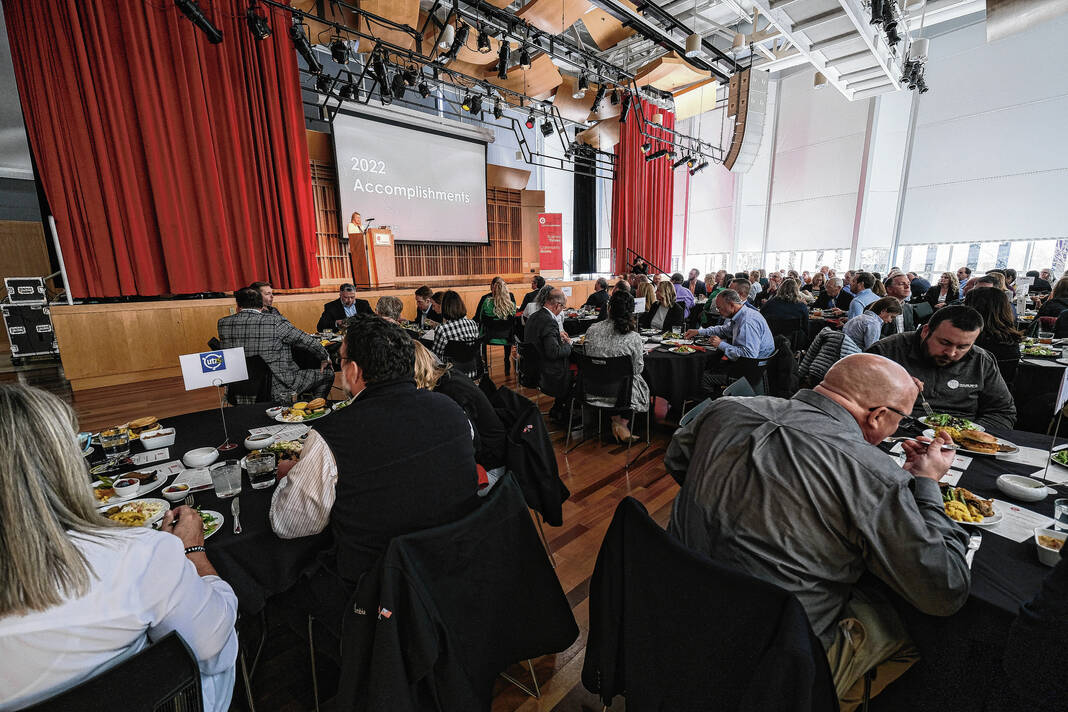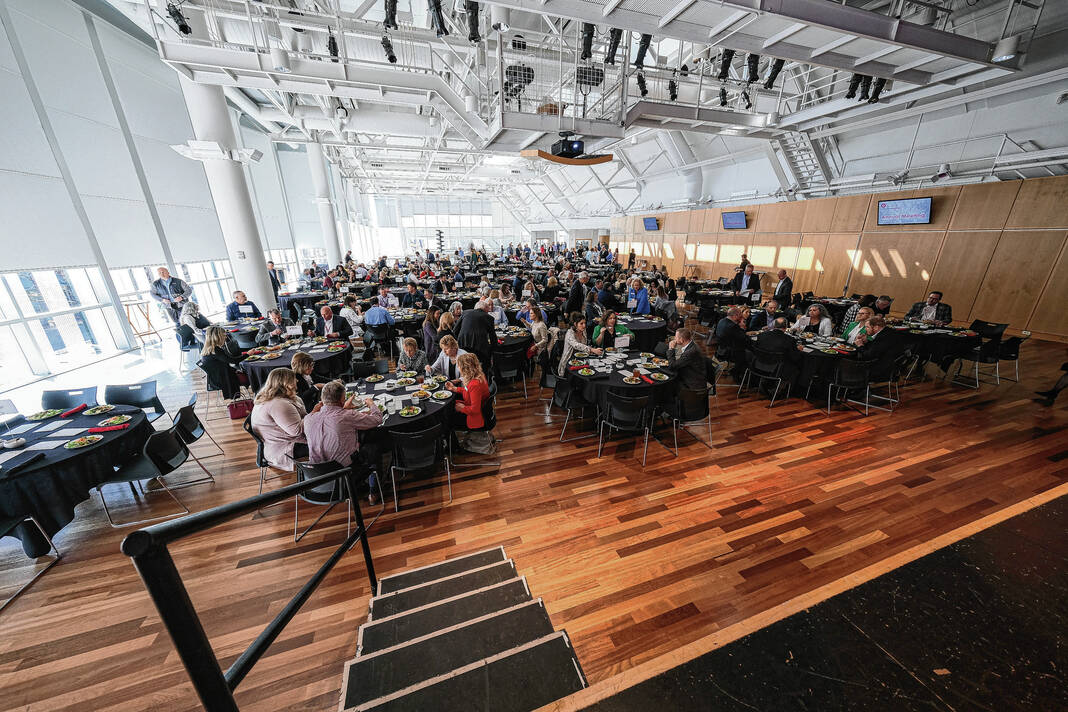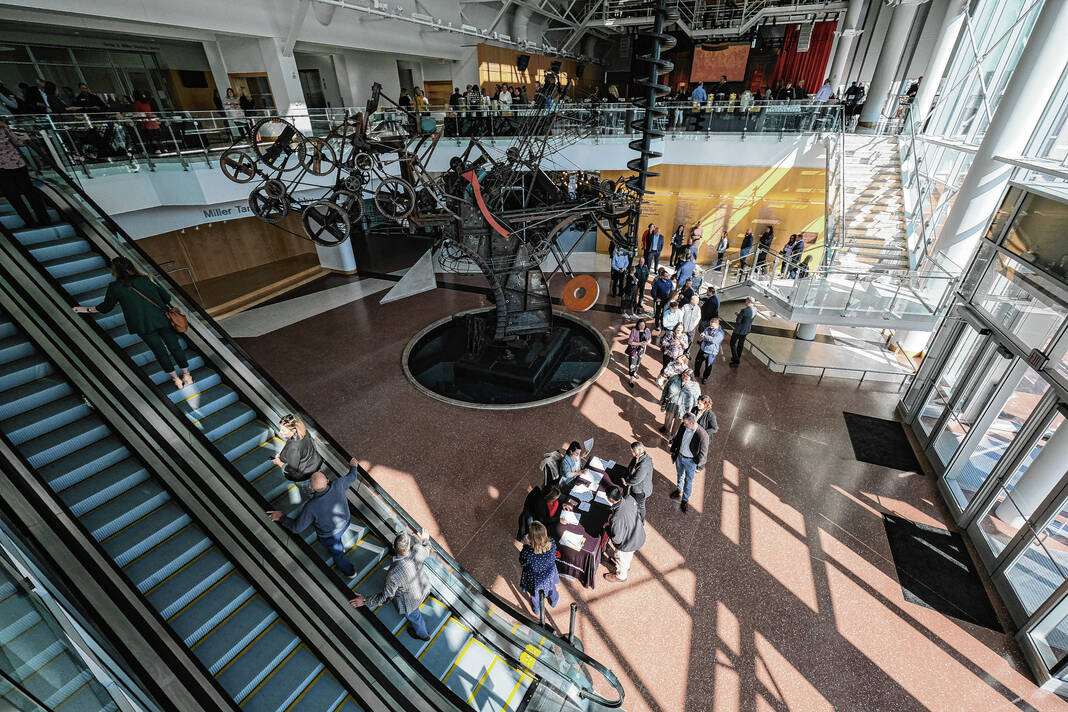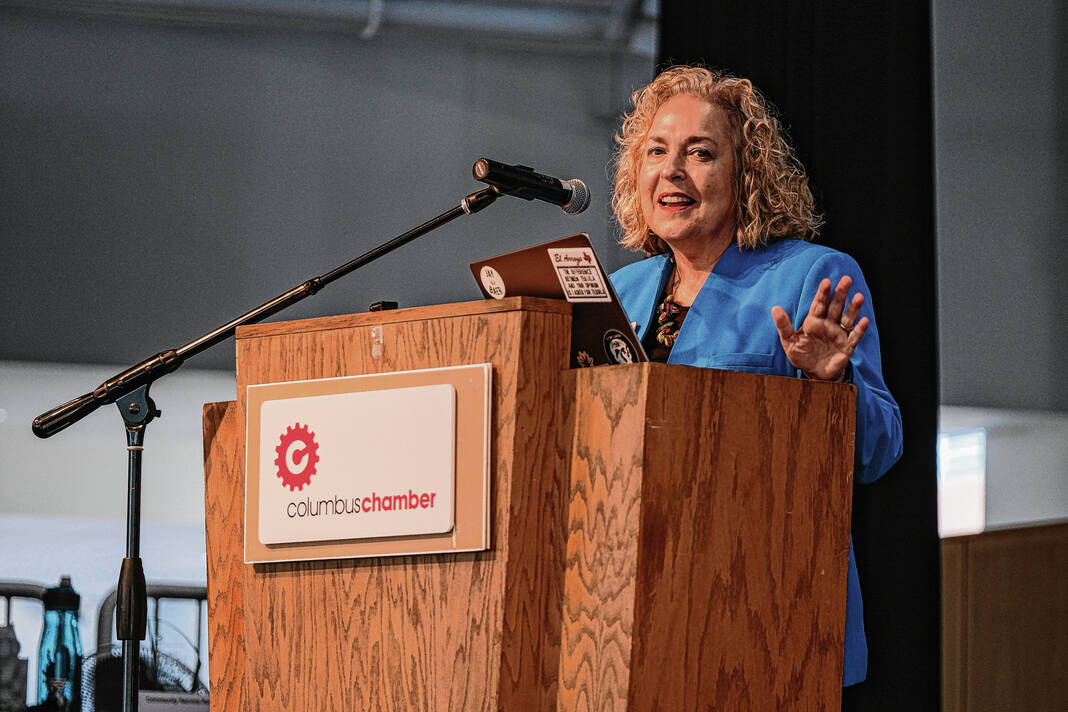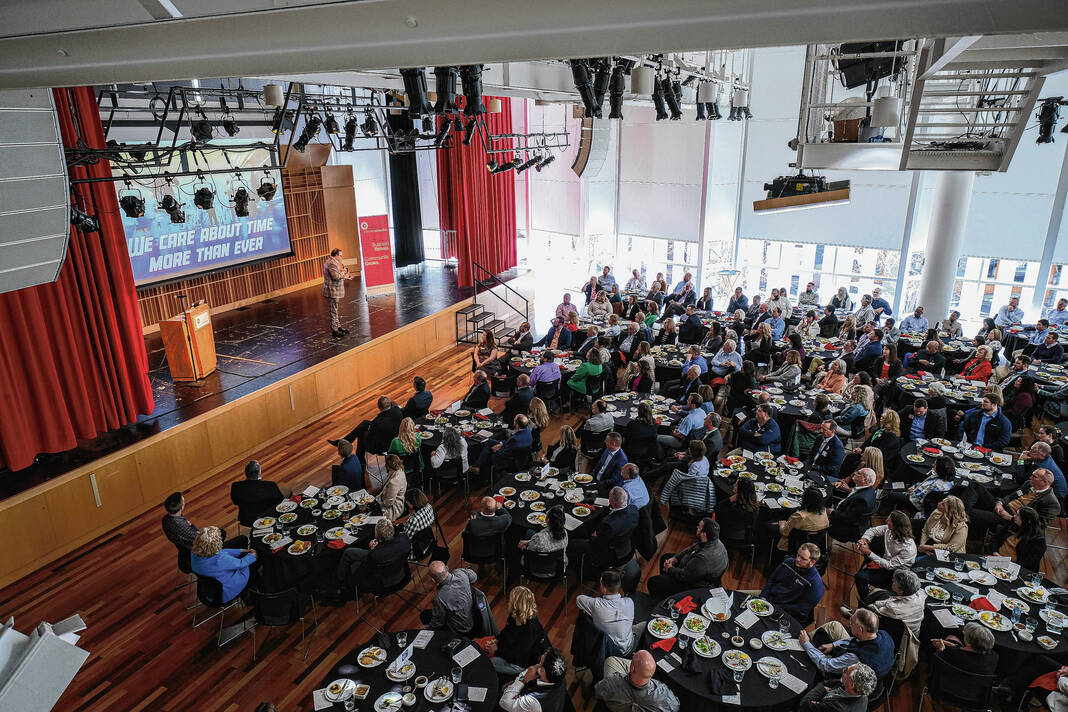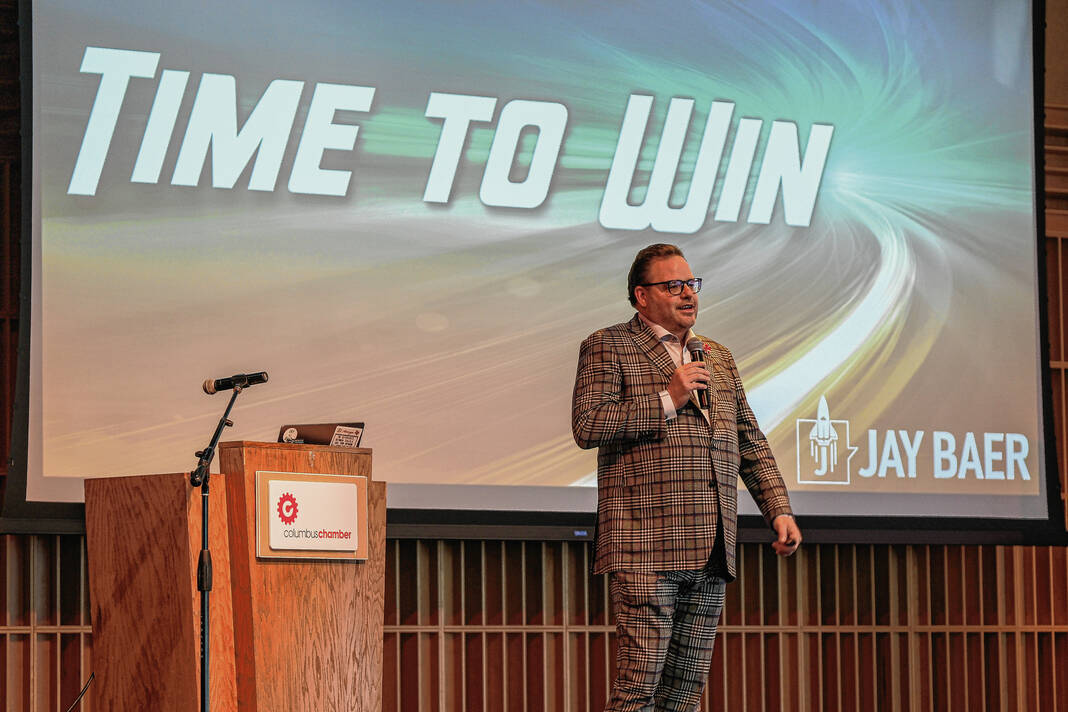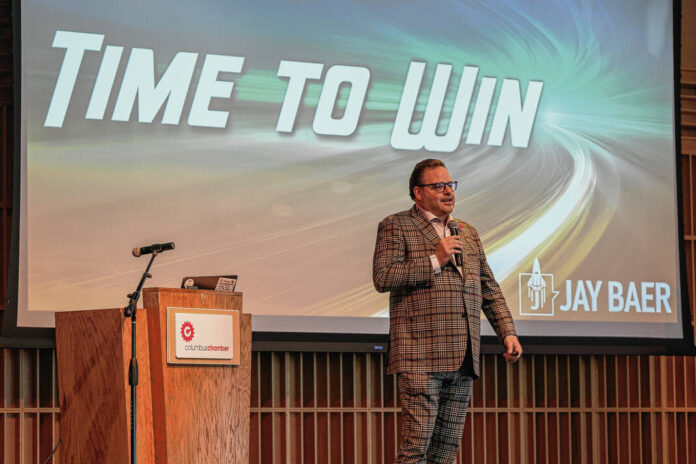
Mike Wolanin | The Republic Jay Baer gives the keynote speech during the Columbus Area Chamber of Commerce annual meeting at The Commons in Columbus, Ind., Thursday, March 30, 2023.
The keynote speaker for the Columbus Area Chamber of Commerce’s annual meeting delivered a timely message to the area business community a full house at The Commons on Thursday: More than ever, time is of the essence when it comes to satisfying customers.
Bloomington-based Jay Baer, a seventh-generation small business owner, member of the Professional Speakers Hall of Fame and a New York Times bestselling author, told hundreds attending the annual gathering that exceeding customer expectations on timeliness is a key to winning trust and business.
“I believe the next competitive business advantage that each and every one of us can and should work on is speed. The reality is, we care about time more than ever,” he said, particularly after the pandemic. “… Today, we interpret speed as caring.”
As a consequence of the pandemic, Baer said, a lot of business trends are a reflections of how much more people now value their time. Those include, he said, “employees wanting a different relationship with their employer, people quitting, the great resignation, work from home … all of those trends are the exact same trend: We care about time, and how we spend it, more than ever.”
When businesses respond to or serve customers faster than they expect, Baer said, “it feels like you’re giving them a gift — the gift of time. But conversely, if it takes you longer to execute than they expect, it feels like you are stealing time from them.”
From his research, he said, “Two-thirds of customers said that speed is as important as price.”
The founder of Convince & Convert Media and an expert on business strategy and entrepreneurship, Baer also encouraged local business leaders to emphasize prompt service and saving customers’ time by trying to anticipate and answer questions before they are asked.
He pointed to anecdotes including an oral surgeon in the New York area who, each Saturday, makes a point to call patients scheduled for surgery in the next week to ask them if they have any questions about what will happen.
“Blows people’s minds,” Baer said. He said while it’s a common practice for medical service providers to make follow-up calls after treatment, what this particular doctor does is different, and patients notice. And for an oral surgeon, perhaps no other word-of-mouth recommendation is as beneficial.
“I’ll bet you none of you have had a physician … call you before you ever step foot on the premises. It’s just not done. But it should be done,” he said. “… Three out of four patients — 75 percent — mention this phone call when they’re in the office.”
“… If we know what our customers and prospective customers need from us informationally, why do we make them work so hard to get it?” Baer asked.
While speed in serving customers is a vital factor, too much may be a bad thing, Baer cautioned. He used the example of being served a plate of chicken enchiladas 90 seconds after ordering. This seemed too fast, causing him to wonder if maybe someone else had changed their mind and the plate had been sitting on a warming tray until he ordered.
“A little faster than expected,” Baer said. “That’s the magic place you want to be.”

